Intro — Why Brain C-13 is getting attention
If you’ve been searching for a brain supplement that claims to support memory, mood and mental clarity, you’ve probably come across Brain C-13. Marketed by Zenith Labs and positioned as a doctor-formulated formula inspired by “Einstein-like” brain chemistry, Brain C-13 is a multi-ingredient capsule blend that’s designed for everyday cognitive support. In this review I’ll break down what’s inside, how it’s intended to work, who might benefit and whether it’s worth adding to your daily routine — all in plain language so you can decide faster.
Table of Contents
What is Brain C-13?
Brain C-13 is a dietary supplement in capsule form produced by Zenith Labs. According to the manufacturer, it combines herbs, amino acids and patented ingredients like Cognizin® (citicoline) and Huperzine-A with traditional botanicals such as bacopa, gotu kola and rosemary. The product is positioned to support memory recall, mood and mental energy while being easy to take — three capsules daily (one with each meal).
Key ingredients and what they’re commonly used for
Below is a concise, user-friendly breakdown of Brain C-13’s main ingredients and the effects they’re commonly associated with. Wherever possible I stick to commonly accepted uses rather than absolute promises.
- Dimethylaminoethanol (DMAE) 150 mg — An organic compound sometimes used in supplements to support alertness and a sense of mental energy.
- Velvet bean (Mucuna pruriens) extract 150 mg — A natural source of L-DOPA precursors; traditionally used in herbal medicine for mood support and motivation.
- Rhodiola root extract 150 mg — An adaptogen known for supporting stress resilience and sustained mental performance.
- Cognizin® (citicoline) 150 mg — A branded form of citicoline often used to support brain energy, focus and attention.
- Rosemary powder 150 mg — Culinary and medicinal herb historically linked with memory-supporting effects.
- Gotu Kola 150 mg — An herb used in traditional systems to support cognition and circulation.
- Acetyl-L-carnitine 150 mg — An amino acid derivative commonly included to support brain metabolism and mental clarity.
- Bacopa monnieri extract 150 mg — An herb with a history of use for memory and learning support.
- Turmeric powder (Curcuma longa) 150 mg — Contains curcuminoids; often included for overall brain health due to antioxidant properties.
- Ginkgo biloba leaf 150 mg — Frequently used to support circulation and cognitive performance.
- Phosphatidylserine 75 mg — A phospholipid associated with neuronal membrane health and cognitive maintenance.
- Dimethylglycine (DMG) 75 mg — A compound used by some for general cellular support and mental stamina.
- Huperzine-A (Huperzia serrata) 300 mg — A potent extract commonly included in nootropic formulas to support memory pathways (use caution and consult a physician; potent compounds can interact with medications).
How Brain C-13 is designed to work (in simple terms)
Brain C-13 layers several complementary actions:
- Neurochemical support — Ingredients like citicoline (Cognizin®), acetyl-L-carnitine and Dimethylaminoethanol (DMAE) are included to support neurotransmitter production and brain energy.
- Herbal cognitive support — Bacopa, gotu kola, ginkgo, rosemary and rhodiola are traditional botanicals that may support memory, attention and stress resilience when taken consistently.
- Membrane and cell support — Phosphatidylserine and Dimethylglycine (DMG) aim to support healthy neuronal membranes and overall cellular function.
- Potent memory facilitator — Huperzine-A is a concentrated extract that’s often used for short-term memory support, though it’s powerful and users should check for interactions.
Together, the formulation attempts to tackle both short-term concentration and long-term maintenance through botanical extracts and clinically studied compounds.
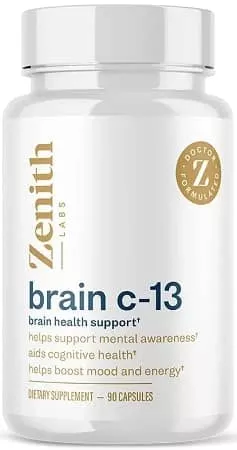
Who might benefit from Brain C-13?
Brain C-13 is targeted at adults who want a single, all-in-one cognitive supplement for:
- Everyday mental clarity and quicker recall.
- People juggling busy schedules who want consistent cognitive support across the day.
- Individuals looking for a formula that blends traditional herbs with clinically studied ingredients like citicoline.
It may be particularly appealing to those who prefer capsules over powders and want a manufacturer that emphasizes quality control.
Dosage, safety and practical tips
- Suggested use: 3 capsules per day — typically one with breakfast, lunch and dinner, per the manufacturer.
- Safety tips: If you’re pregnant, nursing, taking prescription medications or have medical conditions (especially neurological or cardiovascular conditions), talk with your healthcare provider before starting Brain C-13. Some ingredients (e.g., Huperzine-A, ginkgo, mucuna) can interact with medications or have contraindications.
- Start slow: If you’re trying a new nootropic mix for the first time, consider starting with a smaller daily dose to assess tolerance.
- Expectations: Herbal and nutrient-based cognitive benefits often develop over several weeks of consistent use rather than immediately.
Manufacturing quality & transparency
Zenith Labs states Brain C-13 is produced in a top facility, follows cGMP practices and uses tested ingredients. The packaging lists common excipients (gelatin, stearic acid, silica, rice bran extract, microcrystalline cellulose, sunflower oil). If manufacturing rigor is important to you, look for batch testing certificates or third-party testing information from the seller before purchasing.
Pros and cons — quick snapshot
Pros
- Full-spectrum formula with both herbal and clinical ingredients.
- Convenient 3-capsule daily dosing plan.
- Includes branded citicoline (Cognizin®) and well-known botanicals such as bacopa and ginkgo.
- Clear ingredient list on the label.
Cons
- Contains potent extracts like Huperzine-A that may require medical clearance.
- Multi-ingredient blends make it hard to attribute benefit to any single compound.
- Always check with your healthcare provider if you’re on blood thinners, antidepressants or other prescriptions.
FAQs (short & useful)
1. How long until I see results?
Herbal cognitive effects often appear after consistent use for 4–12 weeks. Acute changes in focus could be felt earlier but vary by individual.
2. Can I take Brain C-13 with my prescription meds?
Check with your doctor — especially if you use blood thinners, antidepressants or dopaminergic medications.
3. Is Brain C-13 vegan?
The product contains gelatin, so it’s not suitable for strict vegans.
Why buy Brain C-13?
If you want a comprehensive, doctor-formulated cognitive supplement that blends traditional herbs and modern, studied ingredients, Brain C-13 presents a compelling, all-in-one choice. Its combination of citicoline, bacopa, rhodiola, phosphatidylserine and Huperzine-A positions it as a serious daily support product for memory, mood and mental energy. If you value products made with an emphasis on quality control and a full ingredient list, Brain C-13 is worth a closer look.
If you’re ready to try a complete cognitive stack — or you’ve tried single-ingredient supplements and want a convenient multi-ingredient approach — consider adding Brain C-13 to your shopping list. Always consult your healthcare professional first and if you do buy, monitor how you feel during the first few weeks and adjust as needed.

Final thoughts & next steps
Bottom line: Brain C-13 is a thoughtfully formulated, doctor-designed cognitive supplement that brings together herbs and clinical compounds in a single daily regimen. It’s a good fit for adults seeking a convenient, comprehensive approach to memory, mood and mental energy.
If you want to take action: look for official seller pages that provide third-party lab testing, clear return policies and contact information. That will help you buy Brain C-13 with confidence.
Brain C-13
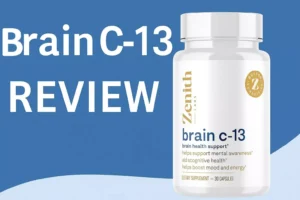
Boost memory, mood & focus — try Brain C-13. Doctor-formulated, cGMP-made formula with citicoline, bacopa & huperzine-A. Order your bottle today!
4.9
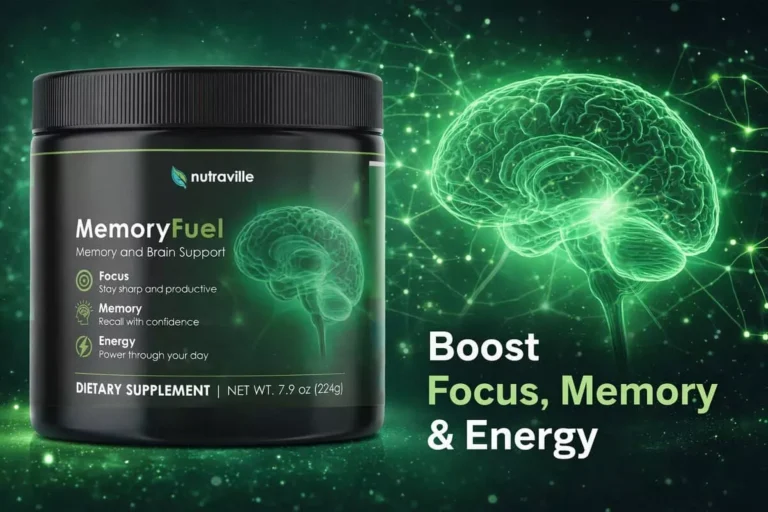
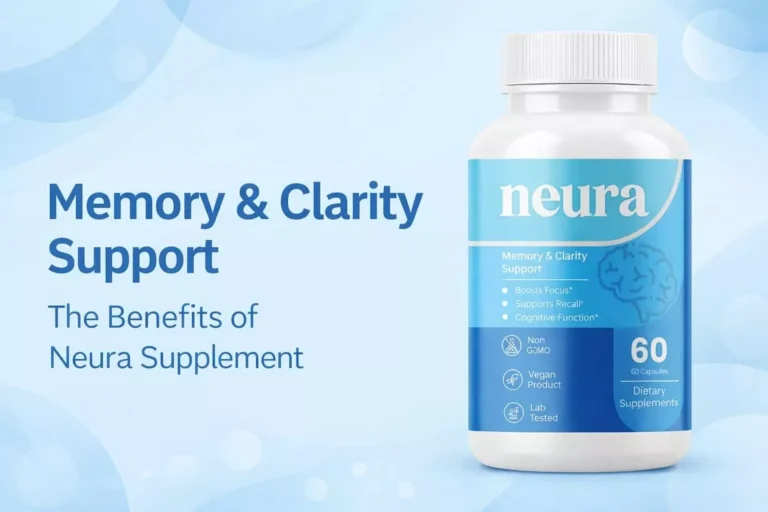
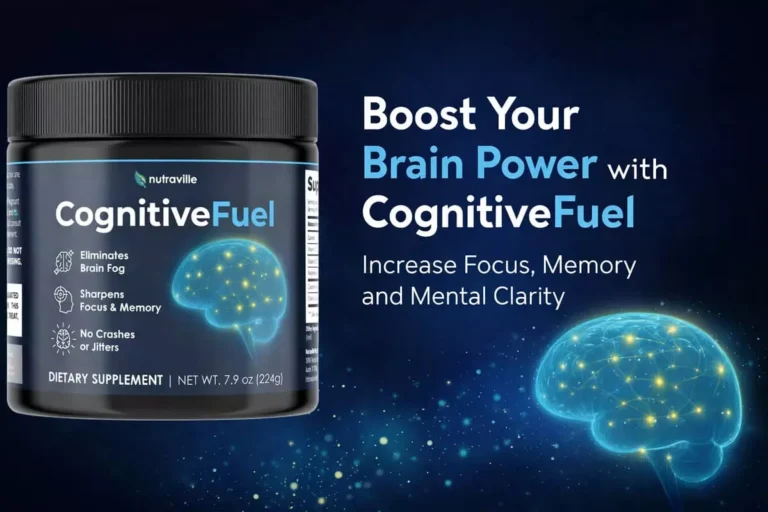
[…] main ingredients the brand highlights and the typical, conservative ways they’re understood to support cognitive health. I avoid clinical claims and stick to the more cautious language you’ll want in a […]
[…] Mane is the mushroom most commonly associated with cognitive support and nervous-system health. While research is ongoing, many users take Lion’s Mane specifically […]
[…] B-complex vitamins — Essential for nerve health and energy metabolism—useful for brain support. […]
[…] Primary purpose: Supports memory function and general brain health […]
[…] brain fog and cognitive decline related to lifestyle and diet. The product claims are focused on supporting brain function and overall quality of life as people […]